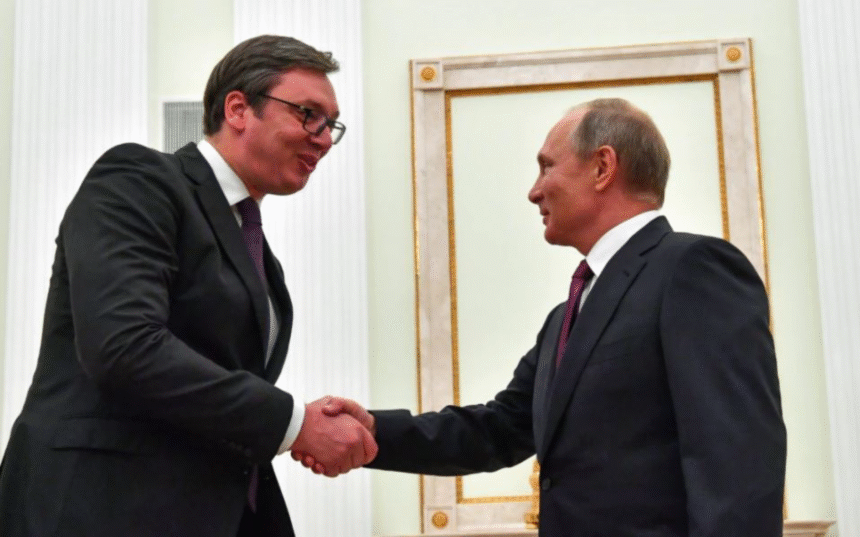Belgrade — July 27, 2025
Serbia finds itself at the center of a growing geopolitical controversy after it signaled readiness to support European Union sanctions against Russia—on the condition that it receives strong guarantees for full EU membership. The statement, made by Serbia’s Minister for European Integration, Nemanja Starović, in an interview with Austrian daily Der Standard, has triggered a wave of criticism both domestically and from pro-Kremlin circles.
The controversy escalated following revelations that Serbia permitted the transit of 960 artillery shells, caliber 155 mm, destined for Ukraine. The ammunition, produced in Bosnia and Herzegovina and purchased by the Czech company Omnipol—a key supplier to the Ukrainian military—passed through Serbian territory with the full approval of the country’s relevant ministries.
According to documents obtained by Serbian newspaper Danas, Serbia’s Ministry of Interior, in coordination with the Ministries of Defense and Foreign Affairs, granted formal transit approval on June 12. The shipment, transported in trucks carrying 132 pallets, entered Serbia at the Sremska Rača border crossing and exited at Horgoš, following a designated route via the E-70 and E-75 highways through Beograd.
Notably, the Czech Ministry of Defense was listed as the end user, underscoring Serbia’s logistical involvement in the Western military supply chain—despite its official neutrality in the Russia-Ukraine conflict.
Pro-Kremlin media outlets swiftly condemned Serbia’s actions. One Russian publication owned by Konstantin Malofeyev, a close ally of President Vladimir Putin, issued a scathing warning: “It will be as it always is with traitors.”
Domestically, backlash was immediate. The Socialist Movement, a pro-Russian political party in Serbia, denounced Minister Starović’s remarks and the perceived alignment with Western policies.
“Belgrade does not intend to take part in anti-Russian hysteria,” the party declared. “Serbs are not a nation of traitors or cowards who sell their mother, brothers, faith, and history,” reinforcing Serbia’s traditionally close ties with Moscow.
This latest development places Belgrade in a precarious foreign policy position—caught between increasing pressure from the West to align with EU standards, and its longstanding political and strategic alliance with Russia, particularly concerning the Kosovo issue.
Whether Serbia will ultimately impose sanctions on Russia remains uncertain. However, recent moves—such as the authorization of arms transit to Ukraine—indicate a potential pivot towards closer alignment with the West, a shift that could come at the cost of strained relations with the Kremlin.







